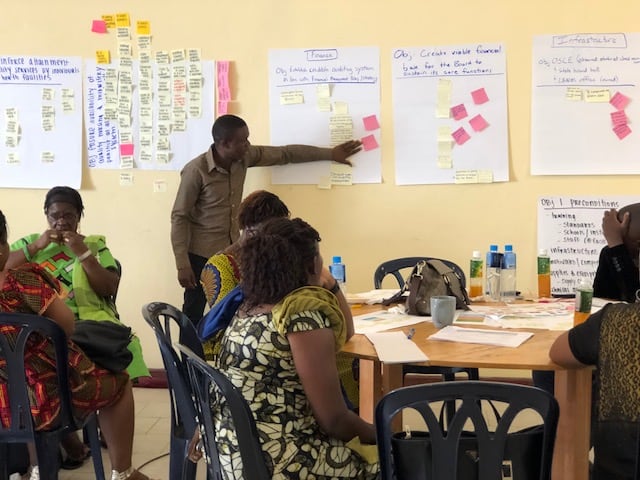International Day of the Midwife
May 3rd, 2018 | news
“Midwives contribute to bringing life into this world. From antenatal care to delivery and six weeks postpartum, midwives plays a critical role, ensuring that a woman and her baby are safe. Recently, our role has gone beyond delivery, beyond the pregnant woman and her baby, our role is holistic,” comments Francess Formah, head of the School of Midwifery in Makeni, Sierra Leone.
May 5th is the International Day of the Midwife and JSI works to ensure that midwives—along with other frontline health care workers—receive the training they need to provide safe delivery services and appropriate maternal and child health in the weeks and months post-delivery.
JSI is supporting midwives in various contexts around the world, from strengthening pre-service training in Pakistan and providing innovative tools for midwives to use on-the-job in Myanmar, to creating a stronger health system in Burma, and building the capacity of midwifery and nursing training institutions and professional associations to contribute to improving the quality of health professional education in West Africa.

JSI helped train midwifery students in Pakistan.
In Sierra Leone and Liberia, JSI is creating a learning collaborative that supports peer-to-peer knowledge exchange to respond to health sector challenges. Recent workshops highlighted a new website and tools developed through the HRSA-funded Resilient and Responsive Health Organizations (RRHO) project.
In Myanmar, where midwives are the first line of skilled care for pregnant women/mothers, newborns, and children in the community, JSI supported the Myanmar Ministry of Health, UNICEF, and other partners to customize and deploy CommCare, an open-source mobile platform that supports frontline workers in low-resource communities. Today, midwives are using CommCare to track and support their clients with a range of services including antenatal care, labor and delivery, essential newborn care, family planning, infant and child care, routine immunization, and nutrition.
In Burma, midwives in rural communities are not only covering multiple communities, but they are also leading integrated community malaria volunteers (ICMVs). Through the Maternal and Child Survival Program, midwives are receiving support to facilitate their oversight of the ICMVs. The linkage of ICMVs to the community health center midwife and upwards to the hospital is building up the country’s health system capacity, one trained volunteer and one diligent, dedicated midwife at a time.
JSI is helping midwives provide high-quality care, and this year, on the International Day of the Midwife, we are highlighting the vital role that midwives play not only in ensuring that women and their newborns navigate pregnancy and childbirth safely, but also receive respectful and well-resourced maternity care that can create a lifetime of good health and wellbeing.

The Resilient and Responsive Health Organizations – Sustainability Communities of Practice Initiative (RRHO) recently held workshops for midwives in Sierra Leone, and, pictured here, in Liberia.
As Francess Formah points out, “Midwives play a critical role in the preparation for conception and pregnancy. A midwife can detect existing conditions that may complicate a pregnancy, and advise on appropriate care. We see the woman holistically—looking at what surrounds her, the determinants that contribute to safe motherhood…. Without midwives, what would happen to women and their newborns? The care that we give to women during pregnancy and six weeks postpartum reflects on the growth and development of the child throughout his or her life.”
We strive to build lasting relationships to produce better health outcomes for all.